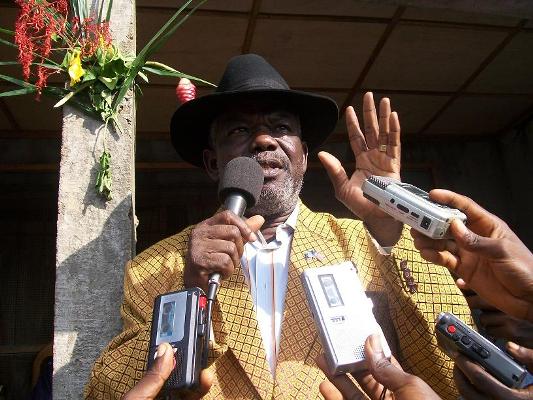Death is a universal concept that looms over everyone, marking an inevitable end to life that seems to arrive without warning. This permanence often leaves behind a landscape filled with shock, confusion, and unanswered questions when it reaches our loved ones. Despite popular beliefs that those nearing death possess some instinctive awareness of their fate, it is largely speculative. Historical and biblical references, such as King Hezekiah’s orderly preparations before his demise, suggest that individuals would prepare for their end if they truly knew it was imminent. However, as former Liberian playwright Wilton G. S. Sankawulo articulated, the unpredictability of death remains a constant truth despite statistical insights into life expectancy, which currently averages 65.25 years in Liberia, according to UN reports.
The sudden passing of influential figures often highlights the unexpected nature of death. For instance, warlord-turned-politician and preacher Prince Y. Johnson’s death on November 28, 2024, caught the nation by surprise, occurring just a day after he had returned from a ceremonial dedication at his university. This timing illustrates that life can change dramatically in an instant, further emphasizing that tomorrow is never guaranteed. While Johnson’s plans for the future may have been extensive, death had other intentions, exemplifying the broader lesson that life is inherently unpredictable.
The notion that “no one is promised tomorrow” highlights the importance of living life meaningfully. This idea calls people to embrace each day with intention and purpose, creating memories that positively impact those around them. However, the legacy a person leaves can vary dramatically based on individual perspectives. In the case of Prince Johnson, he embodies a complex duality distinguished between hero and villain. To some, particularly his supporters from Nimba County, he was a hero who fought against injustices inflicted by former leader Samuel K. Doe. Events from Liberia’s troubled history, including the notorious 1985 raid and the 1990 Lutheran Massacre, paint him as a liberator in their eyes. Conversely, others view him as a villain responsible for unspeakable acts during the civil war, with deep-seated pain and suffering tied to his actions that haunt victims’ families even after his death.
For many, Johnson’s demise may have carried a sense of poetic justice that evades his victims. Individuals who yearned for accountability in the face of his historical transgressions were denied this by the peaceful nature of his death. Unlike former President Charles Taylor, currently serving a lengthy prison sentence for his crimes, Johnson left this world without facing due justice as defined by those who perceived him as a perpetrator. This divergence in views concerning his legacy furthers the conversation about memory and justice, showcasing how one person’s legacy can be an absolute source of comfort or deep distress for others, serving both as a reminder of a painful past and a contested narrative of a chaotic era.
Ultimately, Johnson’s life and death highlight critical lessons about the fleeting nature of existence. Life is a precious gift from God, and the unpredictability of death should inspire individuals to make the most of their time. Each day presents an opportunity to foster relationships, serve others, and address unresolved conflicts. Living with intention translates to maintaining peace with fellow human beings, actively loving one’s neighbors, and holding steadfast in faith. The essence of life’s purpose, as delineated by various perspectives, centers on cultivating a connection with God and nurturing meaningful relationships with others. This helps individuals recognize that they are part of a much larger narrative that demands love, understanding, and reconciliation, transforming life into an opportunity for growth and shared experiences.
In conclusion, occurrences such as the historical trajectory of figures like Prince Y. Johnson remind us that life is a continuation of choices and interactions that shape memories for generations to come. Reflecting on the transience of life necessitates an appreciation for each moment and prompts us to ensure that the legacies we leave resonate positively with others. Acknowledging the duality of a person’s impact raises awareness that while our journeys may come to an end, the memories we create are enduring, influencing those who follow in our footsteps. The call to reflect on our lives and the lives of others becomes clearer as we navigate the complexities of legacy, justice, and memory amid the inevitable truth of death. This reality urges a profound commitment to live each day fully aware of our interconnectedness, striving for compassion, forgiveness, and understanding in our shared humanity.














